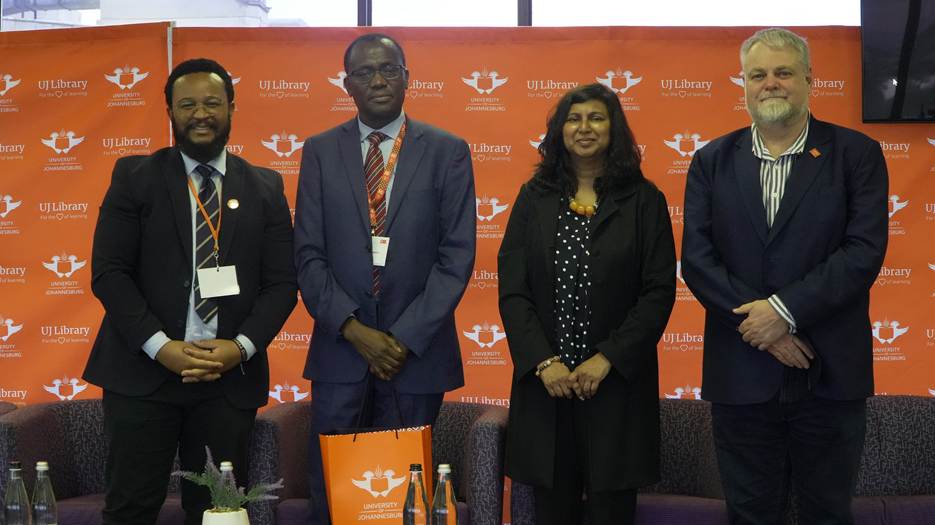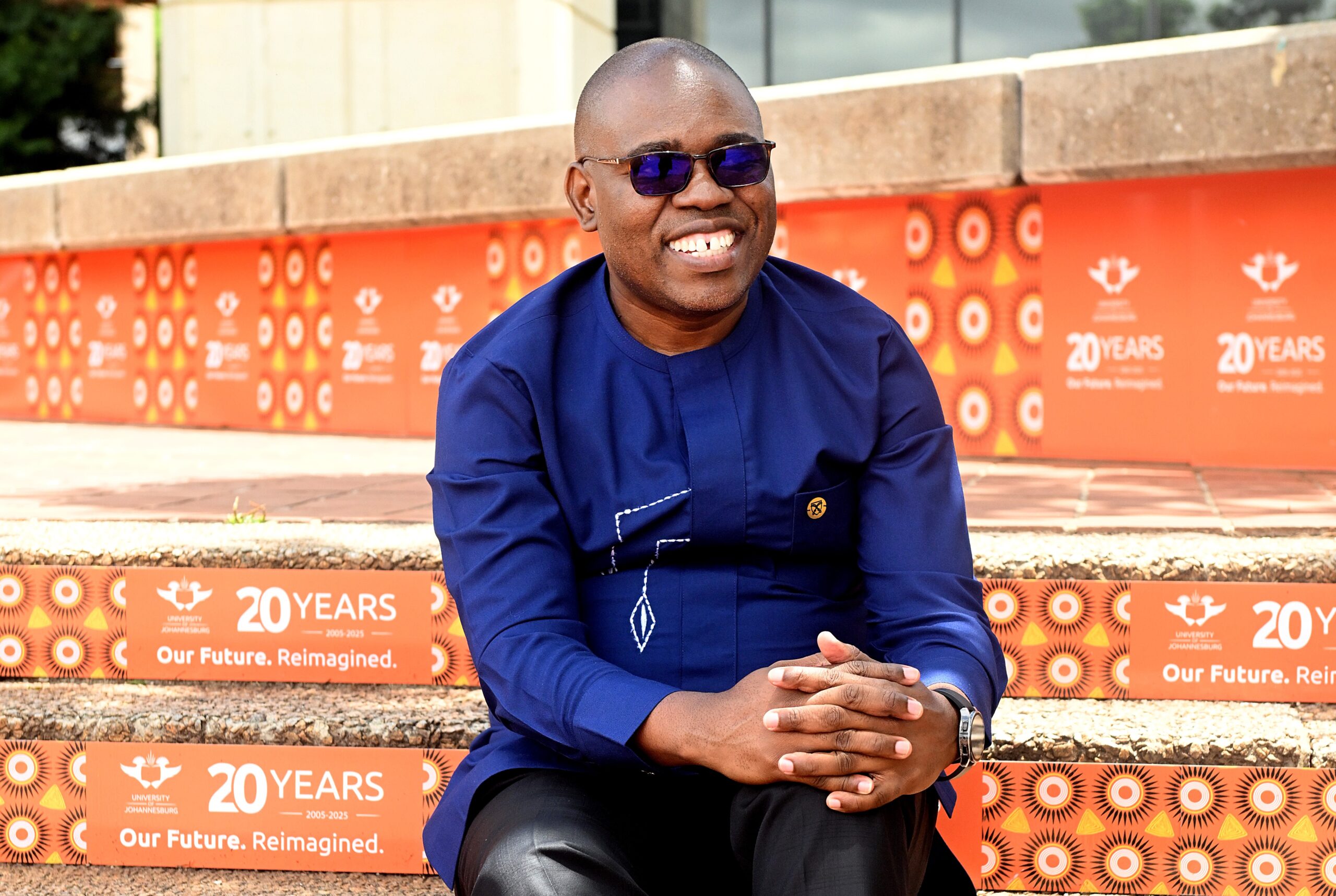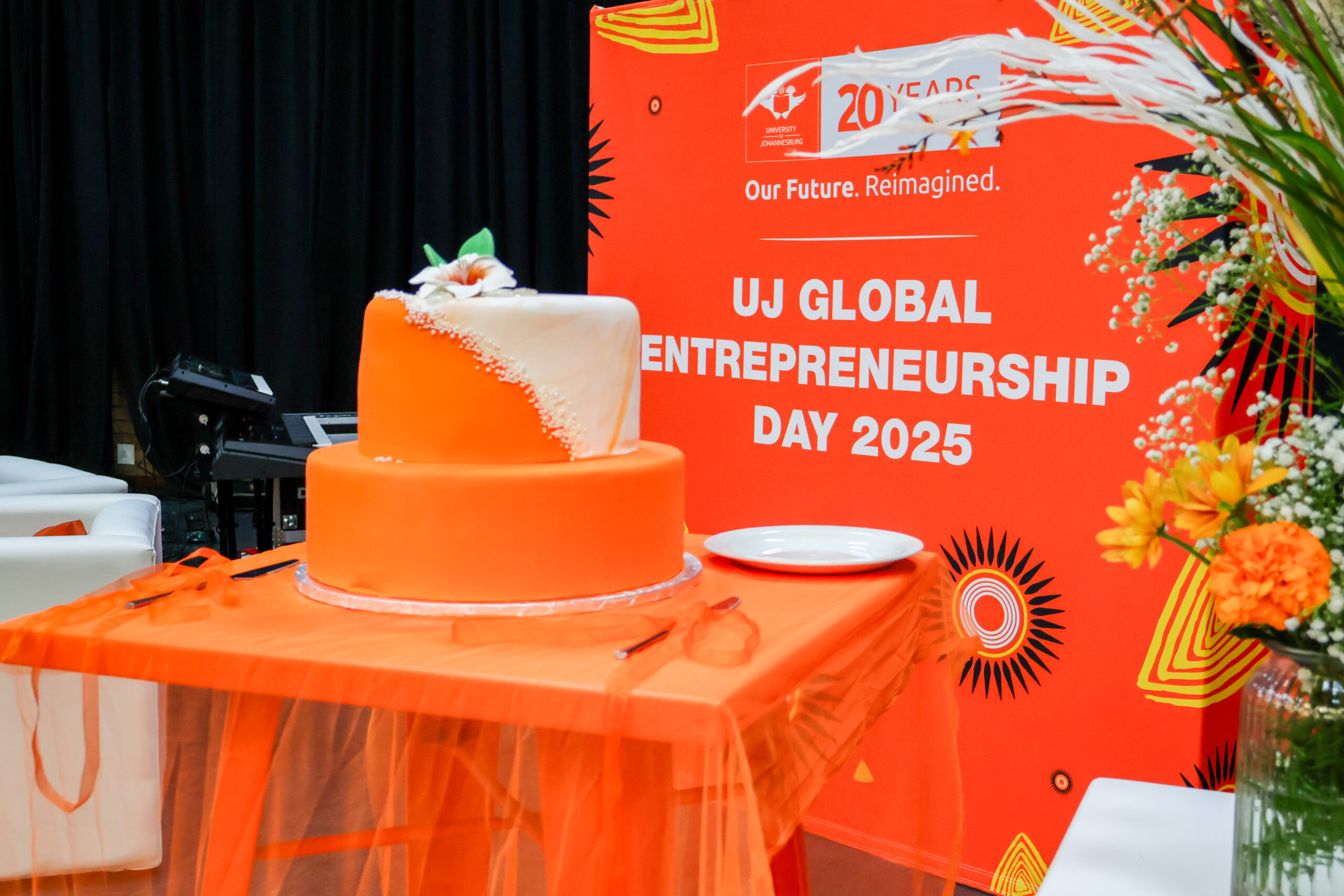On 29 October, the Faculty of Humanities celebrated twenty years of excellence with a special event at the packed Chinua Achebe Auditorium in the UJ Library. The milestone gathering highlighted the Faculty’s global footprint, partnerships, and influence in shaping thought and policy across South Africa and beyond.

The event was opened by Professor Bongani Ngqulunga, Senior Executive Director, and Professor Kammila Naidoo, Executive Dean of the Faculty.
In his address, Prof Ngqulunga reaffirmed the Faculty’s commitment to addressing South African, continental, and global challenges.
“We have seen this in practice, during pivotal moments such as the COVID-19 pandemic, when research in this faculty informed interventions and policies. We are also seeing the Faculty lead in the G20 discourse across issues such as gender equality, digital transformation, international trade, and decent work,” he said.
Prof Naidoo highlighted internationalisation as central to the Faculty’s success.
“None of this would be possible without being a faculty that is highly internationalised and integrated into global networks,” she said. “Since establishing a specialised internationalisation committee in 2023, we have consolidated partnerships, streamlined international student enrolments, and created new opportunities for staff and students to engage globally. Internationalisation also drives our fundraising for impactful research and innovation.”
The evening’s keynote address was delivered by Professor Shadrack Nasong’o of Rhodes College in Memphis, Tennessee, under the theme “A Crisis of the Humanities, or of Humanity?” Prof Nasong’o, a Fulbright Scholar based at UJ for 2025–2026, examined the political and social forces undermining the Humanities and offered proposals for how the disciplines can reclaim their vital role in society.

The programme featured two panel discussions. The first included Professor Victoria Graham (Senior Director: Strategic Initiatives and Administration, and Acting Executive Director of Research Development and Support), Bongani Dlamini (Abbott Laboratories), and Anisa Khan (Director: Academic Services, Division of Global Engagement). The panel discussed topics such as the employability of Humanities graduates, the Faculty’s contribution to UJ’s Strategic Plan 2035, and the distinctive ways it engages globally.
The second panel, chaired by Maipato Mmako-Dlamini, showcased alumni of the Faculty’s Africa By Bus programme: Sibusiso Gwala, Tebatso Mamabolo, Lordy Molisho, and Kutluano Malahlela. The speakers reflected on their transformative study trips to Namibia (2024) and Zambia and Zimbabwe (2025), from which they have published peer-reviewed work on pan-Africanism and regional integration.
Messages of support were shared by international partners, including Pan-Atlantic University in Nigeria (Dr Chike Mgbeadichie), Carleton University in Canada (Prof David Hornsby), and Babes-Bolyai University in Romania (Prof Laura Herta).
The event also featured cross-cultural performances, including traditional music and dance by Intsika YeNkcubeko, a UJ student society, and a performance by Danilo Carrasco Martinez from the Federal University of Bahia in Brazil.
In closing, Professor Bhaso Ndzendze, Vice-Dean of Internationalisation, emphasised the crucial role of partnerships in achieving the Faculty’s and University’s core goals, and in advancing UJ’s vision and values.



